Keyword research stands as a cornerstone of Search Engine Optimization (SEO).
It is the compass that guides marketers in optimizing content, understanding audience behavior, and competing effectively in the online marketplace.
The evolution of keyword research has seen it transform from a simple practice of identifying popular search terms to a sophisticated analysis of user intent, search trends, and competition.
Post Contents
Importance of Keyword Research

Keyword research is pivotal for creating SEO-friendly content that resonates with the audience.
It helps marketers uncover the phrases and terms users are typing into search engines, allowing them to optimize content, drive organic traffic, and increase visibility.
By understanding what potential customers are searching for, businesses can tailor their content strategy, improve site ranking, and enhance user experience.
Evolution of Keyword Research
Over the years, keyword research has evolved to accommodate changes in search engine algorithms and user behavior.
The advent of voice search, mobile browsing, and semantic search has added layers of complexity to keyword research.
Marketers now need to consider long-tail keywords, local SEO, and user intent to stay ahead of the competition.
The evolution underscores the need for specialized tools that can navigate the intricacies of modern keyword research.
The Limitations of Google-native Tools
While Google-native tools like Google Search Console and Google Keyword Planner have been staples in keyword research, they come with their set of limitations.
These tools provide valuable insights but may fall short of offering the depth and breadth of data required for a comprehensive SEO strategy.
Google Search Console
Google Search Console offers insights into website performance, indexing status, and search traffic.
However, its restrictions lie in the limited scope of keyword data, lack of competitive analysis, and absence of keyword suggestions.
Marketers seeking an in-depth understanding of keyword performance and competition may find Google Search Console to be insufficient.
Google Keyword Planner
Google Keyword Planner is a popular tool for identifying keywords for ad campaigns.
While it provides search volume data and keyword ideas, it has limitations in terms of granularity of data, lack of organic competition analysis, and focus on paid advertising.
These limitations necessitate the exploration of alternative keyword research tools for a more holistic approach.
Factors to Consider When Choosing a Keyword Tool

Choosing the right keyword tool is a critical decision that can significantly impact your SEO success.
Several factors come into play in determining the effectiveness and suitability of a keyword tool for your specific needs.
Keyword Database Size
The size of the keyword database is a crucial factor as it determines the variety and relevance of keywords available for research.
A larger database provides access to a diverse set of keywords, including long-tail and niche-specific terms, enabling a more comprehensive keyword strategy.
Keyword Data Coverage
Data coverage refers to the extent of data available for each keyword, including search volume, competition, cost-per-click (CPC), and trends.
Comprehensive data coverage allows for a more informed decision-making process, helping marketers identify lucrative opportunities and assess competition effectively.
Accuracy of Search Volume Stats
Accurate search volume statistics are essential for assessing the popularity and competitiveness of keywords.
Inaccurate data can lead to misguided strategies and missed opportunities.
Therefore, it is imperative to choose a tool that provides reliable and up-to-date search volume stats.
Additional Considerations
Beyond the core features, considerations such as user interface, pricing, customer support, and additional functionalities also play a significant role in choosing the right keyword tool.
Balancing quality and cost, assessing individual requirements, and exploring additional features are integral to making an informed decision.
By understanding the limitations of Google-native tools and considering the essential features of a keyword tool, marketers can equip themselves with the right resources to excel in the competitive digital landscape.
Comparative Analysis of Popular Keyword Tools

In the vast sea of digital marketing tools, several keyword research tools have emerged as frontrunners, each offering a unique set of features, data insights, and user experiences.
Let’s delve into a comparative analysis of some of the most popular tools in the market: Semrush, Moz, Ahrefs, Mangools, Serpstat, and Sistrix.
We’ve also taken a look at some of the most popular AI tools for SEO that are making the rounds lately.
1. Semrush
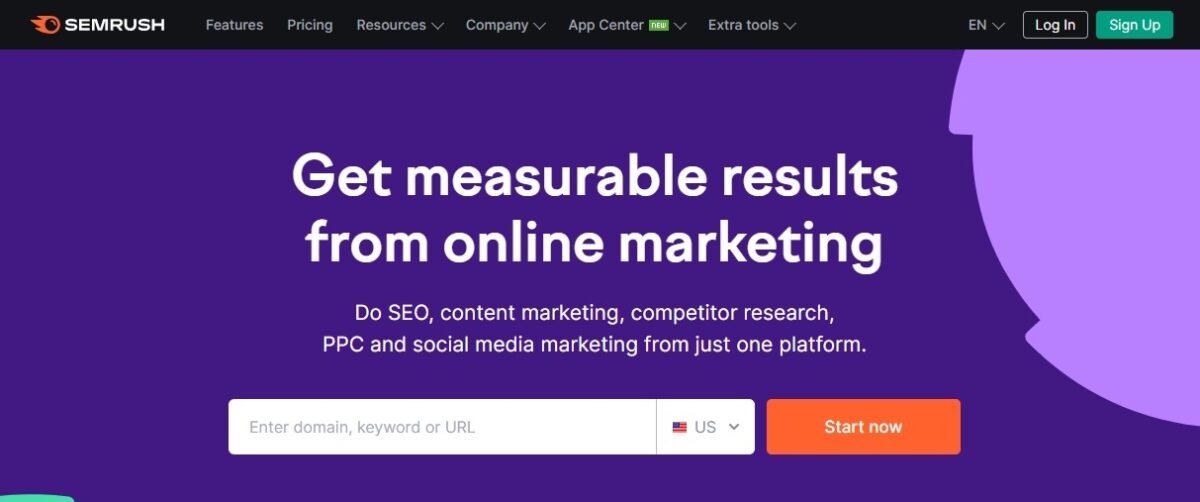
Semrush is a comprehensive digital marketing suite known for its extensive keyword database and accurate data.
It offers insights into keyword difficulty, CPC, competitive density, and SERP features.
With its user-friendly interface and versatile functionalities, Semrush caters to both SEO beginners and seasoned professionals.
However, its premium features come at a higher price point, making it a significant investment.
2. Moz

Moz is a well-established player in the SEO industry, offering a range of tools for keyword research, site audits, and link building.
It is praised for its intuitive interface, accurate domain authority metrics, and robust customer support.
While Moz offers valuable insights, it may lack the extensive keyword database found in other tools.
3. Ahrefs
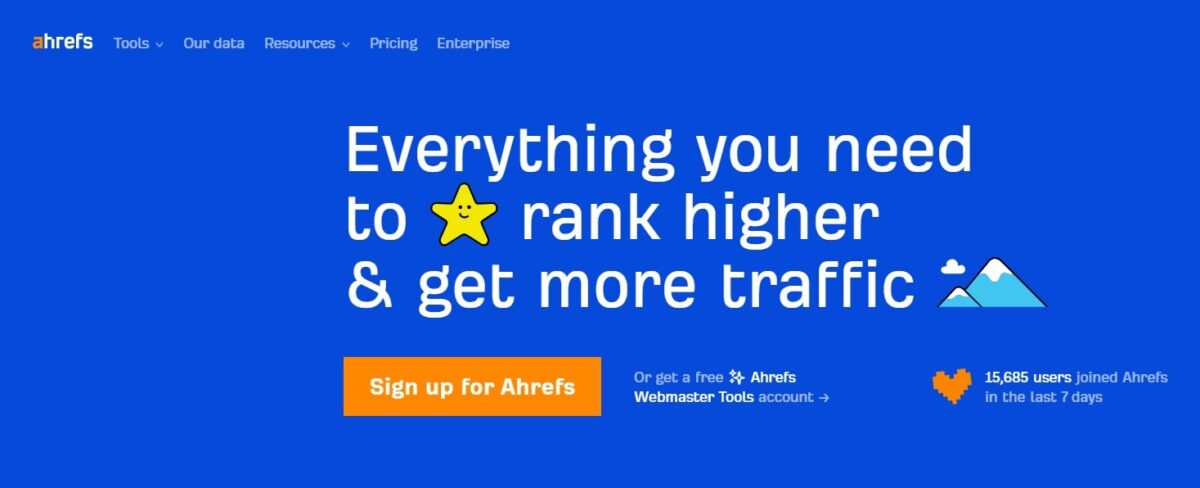
Ahrefs stands out for its extensive backlink database and detailed keyword reports.
It provides insights into keyword difficulty, search volume, click metrics, and global volume.
Ahrefs is a powerful tool for competitive analysis and content exploration but may come with a steeper learning curve for beginners.
4. Mangools

Mangools is known for its simplicity and affordability, making it a popular choice for small businesses and freelancers.
It offers tools like KWFinder for keyword research and SERPChecker for competitive analysis.
While it may not have the extensive features of its counterparts, Mangools provides value for money for those on a budget.
5. Serpstat
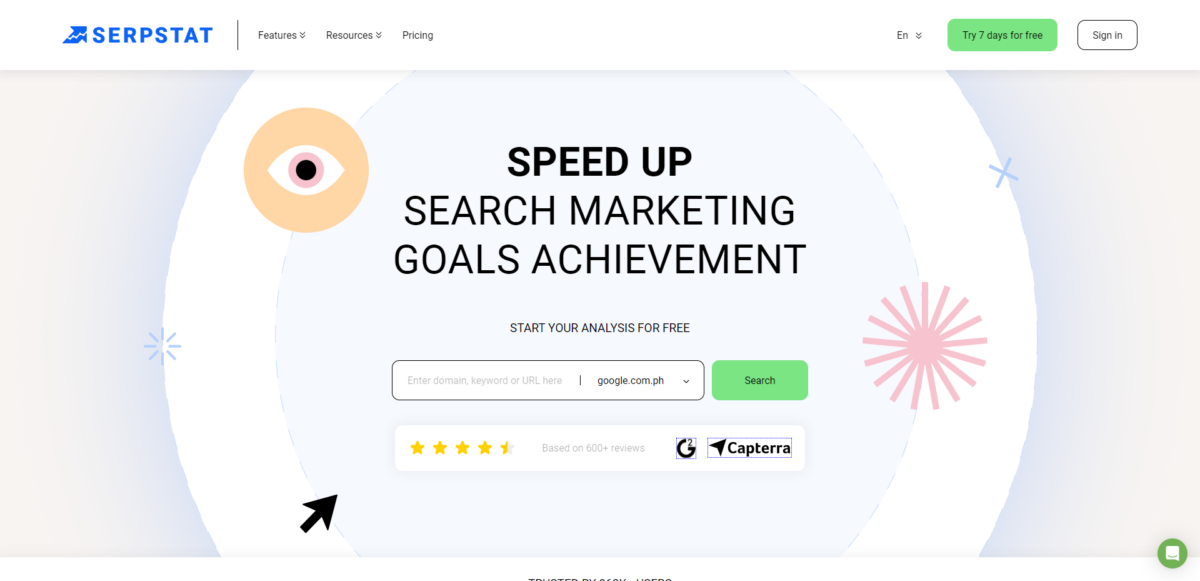
Serpstat offers a balanced mix of features for keyword research, competitor analysis, and site audits.
It provides data on keyword trends, search volume, and competition.
Serpstat is a versatile tool with a competitive pricing structure, making it accessible to a wide range of users.
6. Sistrix
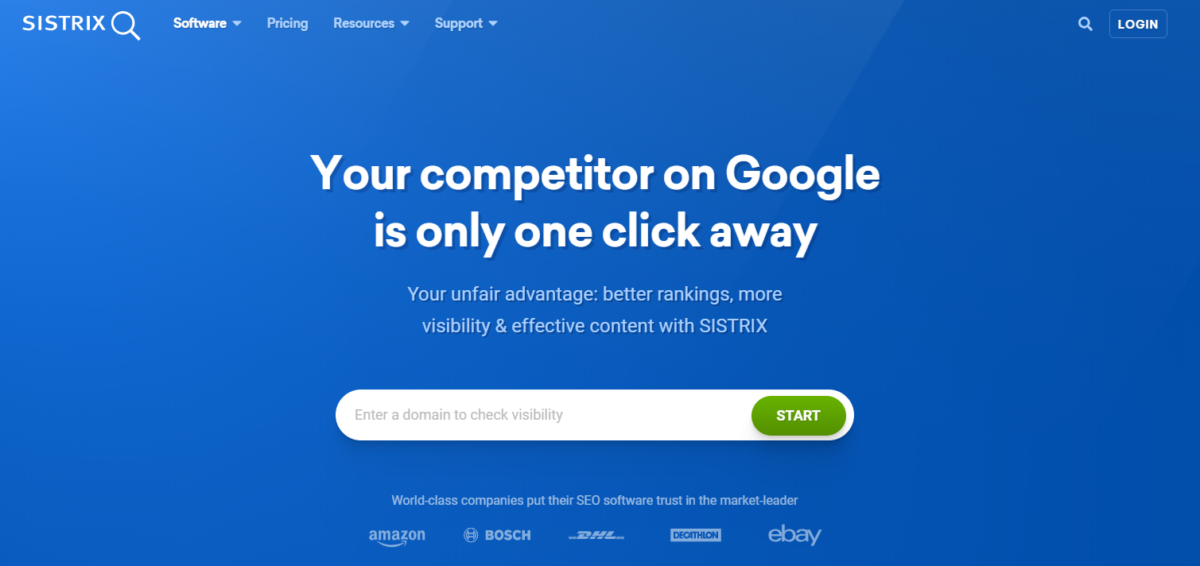
Sistrix is a comprehensive SEO tool known for its visibility index and modular structure.
It offers insights into keyword rankings, opportunities, and competitor analysis.
Sistrix is a premium tool with a focus on data accuracy and transparency, catering to advanced SEO professionals.
7. SurferSEO

SurferSEO combines AI with data-driven insights to optimize content for search engines.
It offers features like content editor, SERP analyzer, and keyword research, providing actionable recommendations for on-page SEO.
SurferSEO is valued for its visual reports, real-time data, and user-friendly experience, catering to both beginners and experienced SEO practitioners.
8. Clearscope
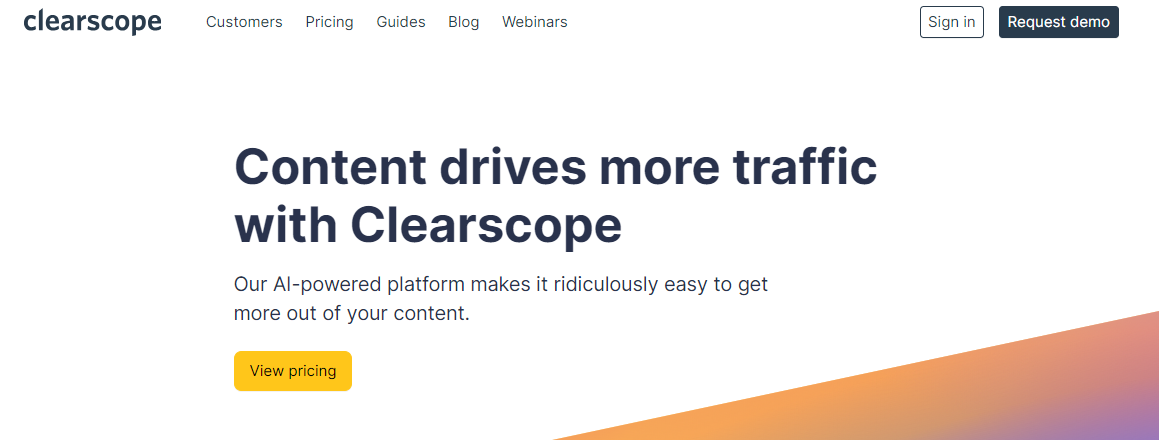
Clearscope leverages AI to optimize content for SEO by providing actionable recommendations and relevant keyword suggestions.
It analyzes top-ranking content and offers insights into keyword usage, content length, and readability.
Clearscope is praised for its user-friendly interface and detailed reports, making it a valuable asset for content creators seeking to enhance their SEO strategy.
9. MarketMuse
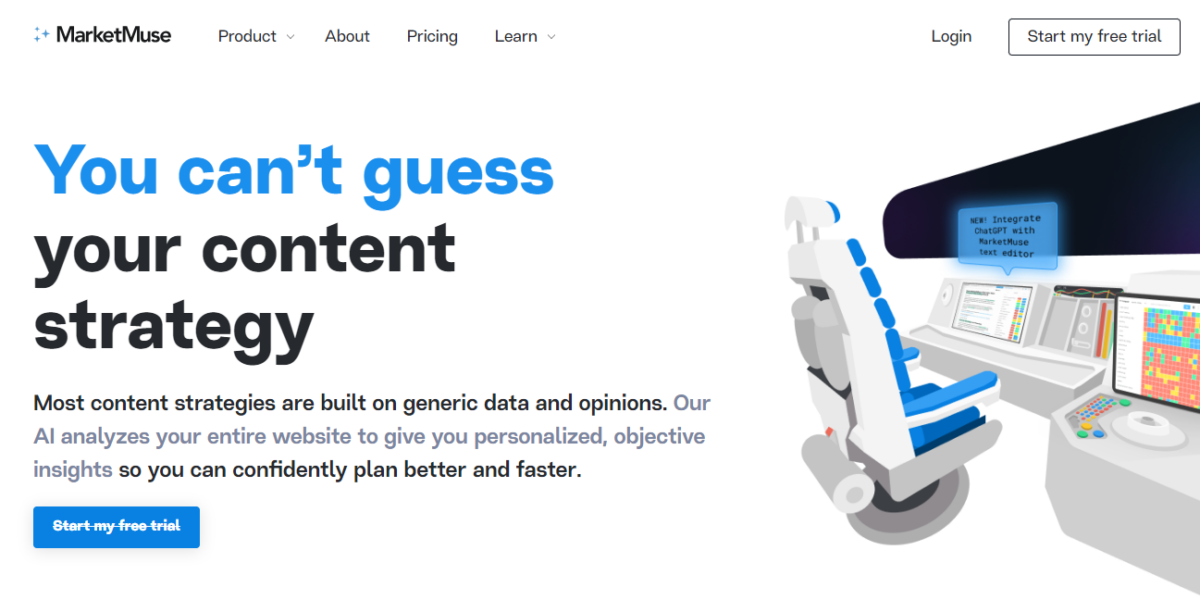
MarketMuse utilizes AI to analyze content, identify content gaps, and suggest improvements for better SEO performance.
It offers features like content scoring, topic modeling, and competitive analysis, enabling marketers to create high-quality, relevant content.
MarketMuse is a comprehensive tool that caters to content marketers, SEO professionals, and digital agencies seeking to elevate their content strategy.
The Importance of Data Quality and Quantity

In the realm of keyword research, the quality and quantity of data are paramount.
High-quality data enables marketers to make informed decisions, optimize content effectively, and stay ahead of the competition.
Access to a large and relevant keyword database opens up opportunities for exploring niche markets, identifying long-tail keywords, and uncovering user intent.
Data Quality
Quality data is characterized by accuracy, relevance, and timeliness.
It provides insights that are reflective of actual user behavior and market trends, enabling marketers to develop strategies that resonate with the target audience.
Data Quantity
Having access to a vast array of keywords is essential for diversifying content, targeting different segments, and exploring new opportunities.
A large keyword database provides the flexibility to adapt to changing market dynamics and user preferences.
Additional Features and Capabilities
Keyword research tools often come equipped with additional features and capabilities that enhance their functionality and user experience.
These features can include AI-driven insights, customization options, integration capabilities, and trend analysis.
AI and Machine Learning
The integration of AI and machine learning in keyword tools enables advanced data analysis, pattern recognition, and predictive insights.
These technologies empower marketers to anticipate market trends, optimize content proactively, and stay ahead of the competition.
Customization and Integration
Customization options allow users to tailor the tool to their specific needs, while integration capabilities enable seamless connectivity with other marketing platforms.
These features enhance workflow efficiency and provide a cohesive marketing ecosystem.
Making an Informed Decision

Choosing the right keyword tool is not just about features and data; it’s about aligning the tool with your individual needs, long-term goals, and budget.
Balancing quality and cost, assessing scalability, and considering the learning curve are essential steps in making an informed decision.
Assessing Needs and Goals
Understanding your specific needs, objectives, and the scale of your projects is the first step in selecting a suitable tool.
Whether you are a freelancer, a small business, or a large enterprise, aligning the tool with your goals is crucial.
Balancing Quality and Cost
Evaluating the value proposition of a tool involves balancing the quality of data and features with the cost.
It’s essential to consider the return on investment and whether the tool provides value for money.
Conclusion
Navigating the world of keyword research tools can be a daunting task, but by considering the various factors, analyzing popular tools, and aligning your choice with your needs and goals, you can unlock the full potential of keyword research.
Remember, the right tool is an investment in your digital marketing success, enabling you to optimize content, understand your audience, and compete effectively in the online marketplace.






























